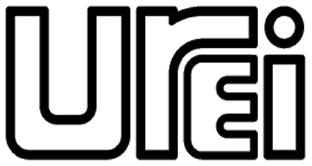Avid Audio is an American digital audio technology company. It was founded in 1984 by Peter Gotcher and Evan Brooks. The company began as a project to raise money for the founders' band, selling EPROM chips for drum machines. It is a subsidiary of Avid Technology, and during 2010 the Digidesign brand was phased out. Avid Audio products will continue to be produced and will now carry the Avid brand name.
Opcode Systems, Inc. was founded in 1985 by Dave Oppenheim and based in and around Palo Alto, California, USA. Opcode produced MIDI sequencing software for the classic Mac OS and Microsoft Windows, which would later include digital audio capabilities, as well as audio and MIDI hardware interfaces. Opcode's MIDIMAC sequencer, launched in 1986, was one of the first commercially available MIDI sequencers for the Macintosh.
Alesis is an American company that designs and markets electronic musical instruments, audio processors, mixers, amplifiers, audio interfaces, recording equipment, drum machines, professional audio, and electronic percussion products. Based in Cumberland, Rhode Island, Alesis is an inMusic Brands company.
Milton Tasker "Bill" Putnam was an American audio engineer, songwriter, producer, studio designer, and businessman. He has been described as "the father of modern recording". He was the inventor of the modern recording console and is recognized as having been a key figure in the development of the postwar commercial recording industry.
Native Instruments is a German company that develops, manufactures, and supplies music software and hardware for music production, sound design, performance, and DJing. The company's corporate headquarters and main development facilities are located in Berlin, with additional offices in Los Angeles, Tokyo, London, Paris, and Shenzhen.
TASCAM is the professional audio division of TEAC Corporation, headquartered in Santa Fe Springs, California. TASCAM established the Home Recording phenomenon by creating the "Project Studio" and is credited as the inventor of the Portastudio, the first cassette-based multi-track home studio recorders. TASCAM also introduced the first low-cost mass-produced multitrack recorders with Simul-Sync designed for recording musicians, and manufactured reel-to-reel tape machines and audio mixers for home recordists from the early 1970s through the mid-1990s. Since the early 00's, TASCAM has been an early innovator in the field-recording and audio accompaniment to video with their DR-series recording platforms. TASCAM celebrated its 50th anniversary in 2021.
Arturia is a French electronics company founded in 1999 and based in Grenoble, France. The company designs and manufactures audio interfaces and electronic musical instruments, including software synthesizers, drum machines, analog synthesizers, digital synthesizers, MIDI controllers, sequencers, and mobile apps.

Automated Processes Inc. is an American company that designs, manufactures, and markets mixing consoles and signal processors, including modular signal processor units in the 500-series format standard that evolved from early API mixing consoles.
Chris Lord-Alge is an American mix engineer. He is the brother of both Tom Lord-Alge and Jeff Lord-Alge, both of whom are also audio engineers. Chris and Tom are known for their abundant use of dynamic compression for molding mixes that play well on small speakers and FM radio. Lord-Alge frequently collaborates with Howard Benson, who has produced the plurality of his mix discography.

TC Electronic is a Danish audio equipment company that designs and imports guitar effects, bass amplification, computer audio interfaces, audio plug-in software, live sound equalisers, studio and post-production equipment, studio effect processors, and broadcast loudness processors and meters. In August 2015, the company was purchased by Music Group, a holding company chaired by Uli Behringer.

United Recording Electronics Industries (UREI) was a manufacturer of recording, mixing and audio signal processing hardware for the professional recording studio, live sound and broadcasting fields.
Dayton Burr "Bones" Howe is an American record producer and recording engineer who scored a string of hits in the 1960s and 1970s, often of the sunshine pop genre, starting in 1965 with The Turtles cover of Bob Dylan's "It Ain't Me Babe," and continuing with most of the hits of the 5th Dimension and the Association. With the exception of Closing Time, he produced and engineered all of Tom Waits' releases with Asylum Records, some of which are considered among the artist's best recordings. Their almost decade-long collaboration has been described as "one of the great artist-producer partnerships". Howe performed music supervision on several feature films, and was one of the first industry members to serve as both producer and engineer of the hit records on which he worked. In addition, he was occasionally credited as a musician on recordings as "Dayton Howe".
Soundscape Digital Technology was a British company which produced Windows-based on digital audio workstations. Designed for multi-channel studio recording, editing and mastering. The company was discovered in 1993 and ceased operations in September 2001.

The LA-2A Leveling Amplifier is an audio compressor produced by Teletronix Engineering Company from 1965 until 1969, and reissued in 2000 by Universal Audio.

Blue Microphones is an American audio production company owned by Logitech that designs and produces microphones, headphones, recording tools, signal processors, and music accessories for audio professionals, musicians and consumers.

The 1176 Peak Limiter is a dynamic range compressor designed by the American engineer Bill Putnam and introduced by UREI in 1967. Derived from the 175 and 176 tube compressors, it marked the transition from vacuum tubes to solid-state technology.

Apogee Electronics is an American manufacturer of audio interfaces and audio converters, USB & iOS microphones as well as audio production software.
Musical outboard equipment or outboard gear is used to process or alter a sound signal separately from functionality provided within a mixing console or a digital audio workstation. Outboard effects units can be used either during a live performance or in the recording studio.
PreSonus Audio Electronics, Inc. is an American manufacturer of professional audio equipment and software, used to create, record, mix, and master music and other audio. This includes their line of digital audio workstation (DAW) software, Studio One. In November 2021, it was announced that the company is to be acquired by Fender.







